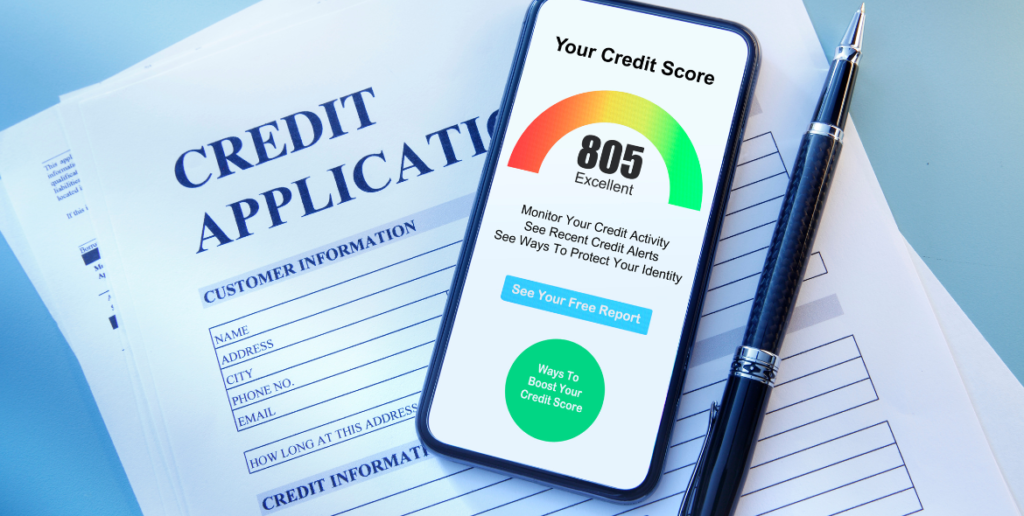[fusion_dropcap color="#000000" class="fusion-content-tb-dropcap"]Y[/fusion_dropcap]our credit score is a major factor that impacts your financial life. A good credit score can unlock opportunities for better interest rates, more accessible loans, and higher chances of credit card approvals. If you’ve ever wondered how to build passive income while working towards financial flexibility, here’s a step-by-step guide to help you improve your credit score. These ten methods are simple, actionable, and can make a significant difference over time. Let’s dive in!
1. Understand Your Credit Score

Before you can improve your credit score, it’s important to understand it. A credit score typically ranges from 300 to 850, with a score above 700 considered good. Various factors contribute to your score: payment history, credit utilization, credit history length, new credit inquiries, and types of credit. By knowing how these factors work, you can start making smarter financial decisions that positively impact your score. Learning about passive income basics can also help in creating diversified financial strategies that contribute to long-term stability.
Key Factors That Affect Your Credit Score
- Payment history
- Credit utilization
- Length of credit history
- New credit inquiries
- Credit mix
Knowing these factors will guide you in making smart financial decisions that positively impact your score.
2. Pay Bills on Time, Every Time

One of the most impactful ways to improve your credit score is simply paying your bills on time. Payment history accounts for 35% of your credit score, so missing payments can significantly hurt it. Consider setting up automatic payments or setting reminders to avoid late payments. Even one missed payment can lower your score, so consistency is key!
For an understanding of key factors to choose the right financial strategy, think of credit management as another layer in achieving your financial goals.
Tips to Help You Pay on Time
- Set up automatic payments.
- Use reminders or alarms on your phone.
- Prioritize payments for credit-related bills, such as credit cards and loans.
3. Reduce Credit Card Balances

Keeping high balances on credit cards can harm your credit score. Your credit utilization ratio – the amount of credit you’re using compared to your total credit limit – should ideally be below 30%. If your credit limit is $10,000, try to keep your balance below $3,000. Lowering your credit utilization ratio can show lenders you’re responsible with credit, which can lead to a score boost. For additional ways to secure financial stability, exploring different passive income methods may be beneficial.
How to Lower Your Credit Utilization
- Pay off balances strategically.
- Request a credit limit increase.
- Avoid making large purchases on your credit cards.
4. Avoid Closing Old Credit Accounts

When trying to improve your credit score, avoid closing old accounts. The age of your credit history contributes about 15% to your score. If you close older accounts, you shorten your credit history, which can negatively impact your score. Keep those accounts open, even if you’re not actively using them.
Maintaining older accounts without actively using them helps preserve your credit history. You could also look into passive income streams that align with financial planning efforts and complement your credit-building strategy.
Strategies for Managing Older Accounts
- Keep accounts open, even if you don’t use them often.
- Use these accounts occasionally to keep them active.
5. Limit New Credit Applications

Each time you apply for new credit, a hard inquiry is made, which can lower your score temporarily. Multiple hard inquiries in a short time can signal to lenders that you’re in financial trouble, making you appear risky. Aim to limit new applications, especially if you’re working on improving your credit score.
Minimizing hard inquiries is vital, especially if you’re in the process of improving your credit score. Meanwhile, for those exploring financial growth, passive income opportunities might serve as a way to build wealth without relying heavily on credit.
Tips to Minimize Hard Inquiries
- Only apply for credit when necessary.
- Shop for loan rates within a short window to count multiple inquiries as one.
6. Diversify Your Credit Mix

Having a mix of credit types, such as credit cards, installment loans, and a mortgage, can positively impact your score. Lenders like to see that you can manage different types of credit responsibly. While you shouldn’t take on debt just to diversify, keeping a balanced credit portfolio can benefit your score.
Building a Balanced Credit Mix
- Avoid taking on unnecessary debt.
- Focus on managing your existing mix well.
7. Regularly Check Your Credit Report for Errors

Your credit report might contain errors that could harm your credit score. By checking your report regularly, you can spot mistakes, such as incorrectly reported late payments or inaccurate account balances. If you find an error, report it to the credit bureau immediately for correction. Ensuring your report is accurate helps prevent any unjustified score drops.
Ensure a strong financial foundation by addressing common misconceptions about financial health to avoid common credit pitfalls.
Steps to Check and Correct Errors
- Request a free copy of your credit report annually.
- Report errors to the credit bureau and dispute inaccuracies.
8. Become an Authorized User on Someone Else’s Account

If you have a family member or close friend with good credit, consider becoming an authorized user on one of their accounts. This strategy can benefit you by improving your credit through a shared positive payment history. While building credit, exploring passive income trends could also provide supplemental financial support over time.
Things to Consider Before Becoming an Authorized User
- Ensure they have a good payment record.
- Understand that missed payments on this account could also harm your score.
9. Negotiate with Lenders to Remove Negative Items

Some lenders may be willing to remove a late payment or other negative item from your credit report, especially if you’ve otherwise been a responsible borrower. Contact them and ask for a “goodwill adjustment.” While there’s no guarantee, it’s worth trying. Clearing even one negative mark can lead to a noticeable improvement in your credit score.
Clearing even one negative mark can lead to a noticeable improvement in your credit score. Additionally, learning about the future of passive income in retirement planning may also open new financial pathways to explore.
Steps to Request a Goodwill Adjustment
- Contact the lender and politely ask for the adjustment.
- Be prepared to explain why you missed the payment and your current efforts to manage your credit responsibly.
10. Consider a Credit-Building Loan

If you’re looking to improve your credit score and don’t have a diverse credit mix, a credit-building loan could help. These loans are specifically designed to help you build credit over time. The lender holds the loan amount in a bank account while you make monthly payments, which are reported to the credit bureaus. Once the loan is paid off, you’ll receive the funds and a potential credit score increase.
A credit-building loan could help you establish a positive payment history. For structured options, you may explore investment funds or term loans offered by various programs.
Benefits of a Credit-Building Loan
- Helps you establish a positive payment history.
- Increases your credit mix, which can positively affect your score.
Take Charge of Your Credit Score Today!
Taking charge of your credit score doesn’t happen overnight, but with patience, you can reach financial freedom. By pairing these credit strategies with passive Income-building tips, you’ll be well on your way to financial security and improved credit opportunities!
Remember, every small step you take today can have a big impact on your credit score in the long run. By taking proactive measures, you’ll be well on your way to financial freedom and improved credit opportunities!
Frequently Asked Questions (FAQs)
What is a credit score, and why is it important?
A credit score is a numerical representation of your creditworthiness. It’s used by lenders to assess the risk of lending to you. A higher credit score indicates a lower risk, making it easier to qualify for loans and credit cards with better interest rates.
How often is my credit score updated?
Credit bureaus typically update credit reports and scores monthly. However, major changes, like new credit accounts or late payments, can trigger more frequent updates.
How long does it take to improve my credit score?
The time it takes to improve your credit score varies depending on your starting point and the specific actions you take. Consistent positive credit behavior, such as timely payments, can lead to noticeable improvements within a few months.
Is it possible to improve a bad credit score quickly?
While it’s challenging to significantly improve a bad credit score quickly, consistent responsible financial behavior can accelerate the process. Focus on timely payments, reducing credit utilization, and avoiding new credit inquiries.
What is the best way to dispute errors on my credit report?
The Fair Credit Reporting Act (FCRA) provides the right to dispute inaccurate information on your credit report. You can dispute errors directly with the credit bureaus or by submitting a dispute through a credit monitoring service.


Leave a Reply